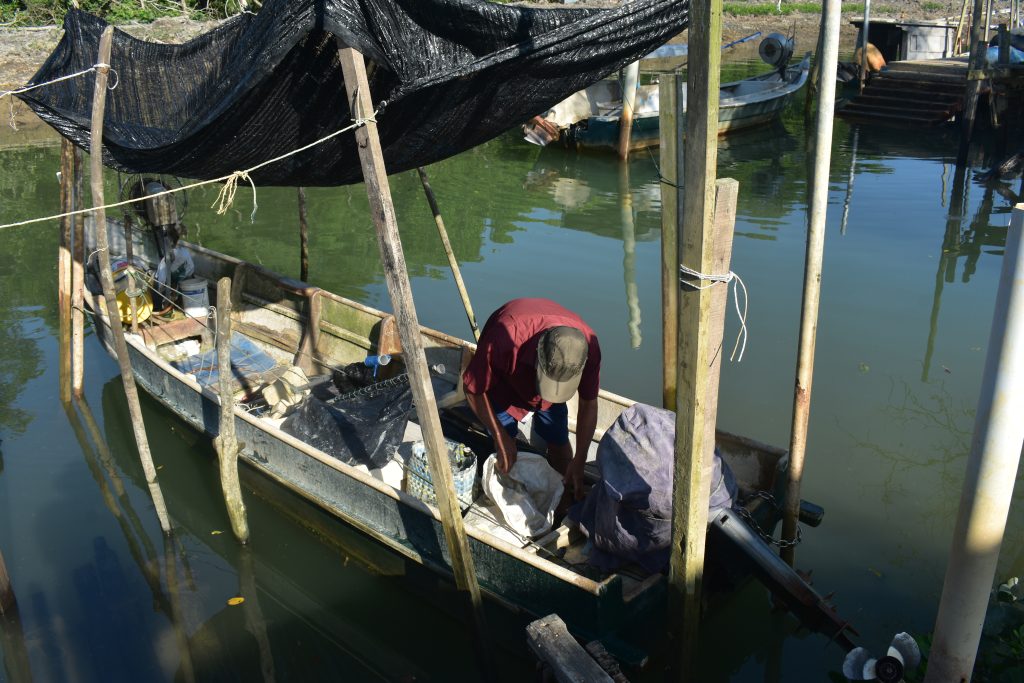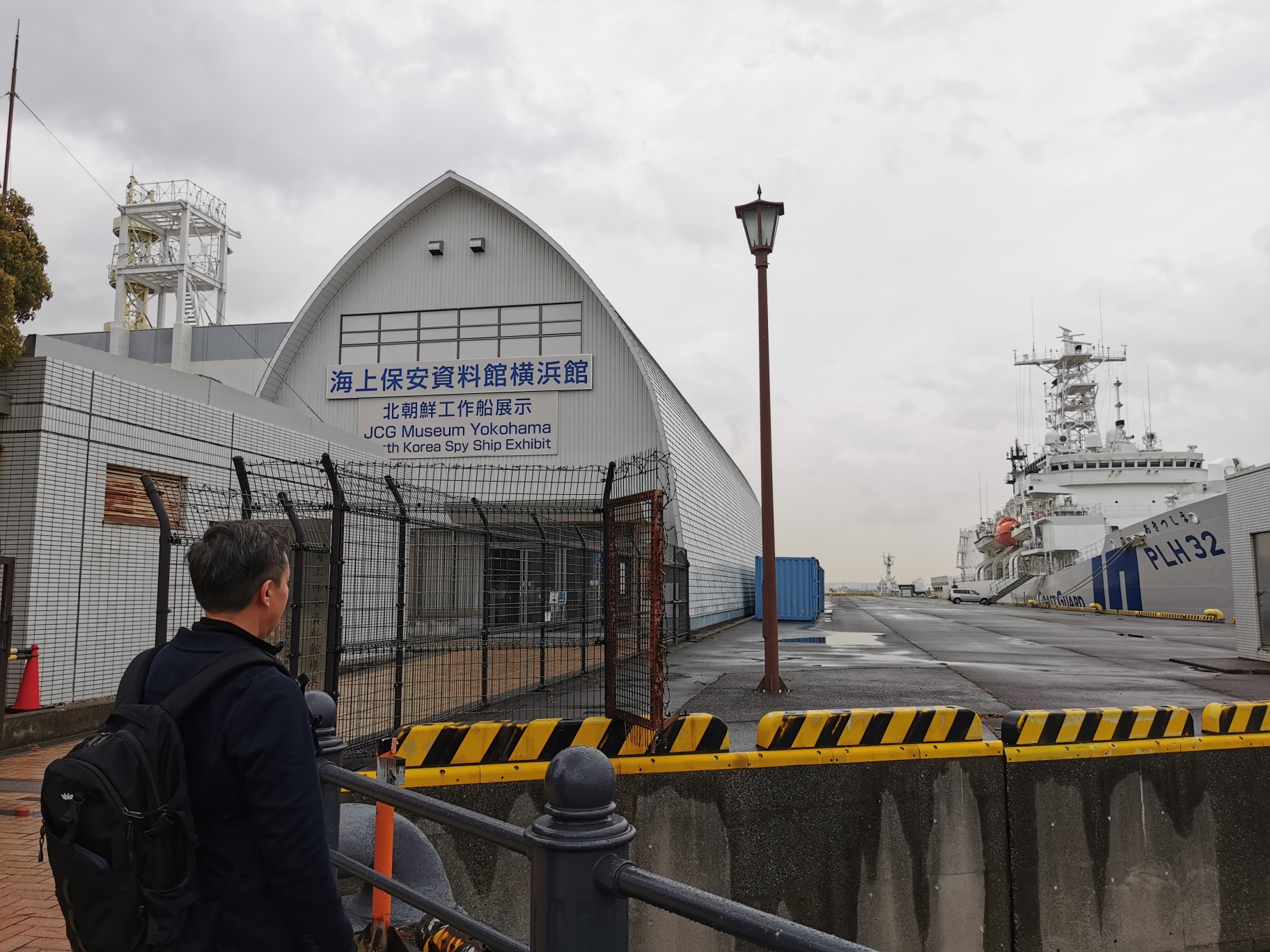The RM30,000 (US$6,657) offered as compensation is grossly inadequate to address the extensive damage caused by the Jimah coal power plant cluster. This injustice is unacceptable and calls for a more equitable solution that properly accounts for the true costs of the destruction of Kampung Chuah’s environment, economy, and wellbeing.
Located in the northern part of the Port Dickson District in Negeri Sembilan, Malaysia, Kampung Chuah is a fishing village with the highest concentration of fishermen (97) compared to other regions, with 82 outboard-powered boats owned by them, according to the Port Dickson District Department of Fisheries. The ethnic breakdown consists mainly Chinese (43), followed by Malay (40), and Indian (14) individuals.
Kampung Chuah is geographically encircled by sprawling mangrove swamps and mudflats which can reach up to 1 km or more from land during low tide. By acting as both nurseries and nutrient traps, mangrove swamps contribute to higher survival rates among fish and subsequently create more aquatic life in their vicinity. This, in turn, increases the carrying capacity of commercial fisheries stocks near these environments.

“It used to be teeming with an abundance of juvenile Asian Sea Bass, Snappers, crabs, and shrimps,” STC, a fisherman who preferred not to give his full name, said. “However, this is no longer the case now, especially since fishes, shrimps, and crabs have vanished.” He sadly recounted to Maritime Fairtrade the drastic change in the mangrove habitat of Kampung Chuah.
Born and raised in Kampung Chuah, STC, 68, has had an incredible connection with the sea since he was young. “The sea is more than just a source of sustenance for Kampung Chuah; it’s an abode for generations, he continued. “Our forefathers set the precedent for this, and we are lamenting that the tradition may end with my generation.”
Two questions loom: Who caused this? What has happened to the marine environment there?

Jimah, the coal power plant cluster
Malaysia heavily relies on cost-effective sources such as coal and natural gas to power its electricity. Peninsula Malaysia, to date, has 47 power stations that are mainly powered by coal and natural gas, accounting for approximately 93 percent of the country’s electricity. 43 percent of energy consumption in the country comes from coal.
Jimah, at Port Dickson, is one of the six coal power plant clusters, along with Sitiawan (Perak), Kapar (Selangor), Kukup (Johor), Kuching and Mukah (Sarawak). It is just a seven-minute drive to Kampung Chuah from Jimah.
In 2005, the construction of Jimah Power Plant (JPP) with two 700 MW coal-fired generating units commenced and it was completed by 2009. Jimah Energy Ventures (JEV) was appointed as the operator in charge of developing, owning, and managing the plant. Jimah O&M holds 10 percent, Tenaga Nasional (TNB) holds 20 percent, Negeri Sembilan State Government holds five percent, and Jimah Teknik holds 65 percent ownership of JEV.
JPP has a well-equipped coal loading jetty that can easily accommodate larger vessels like the massive Capesize bulk carriers.

Standing for justice
Maritime Fairtrade asked, “Did the community of Kampung Chuah stand against the JPP?”
“Yes, we took a unified stance against the JPP and even went as far as lodging a protest for two reasons back then,” STC replied. “Firstly, due to its presence, fish stocks in this area had been reduced tremendously. Secondly, our fishing activities had been restricted near JEV’s properties.”
Maritime Fairtrade then posed another question, “What was JEV’s response to the protest?”
“JEV offered RM10,000 for each outboard-powered boats in the district as recompense for losses incurred, including mine,” STC answered.
The story, however, didn’t end here for Kampung Chuah.
One is never enough
In 2014, the Energy Commission of Malaysia selected 1Malaysia Development Bhd (1MDB) and Mitsui to implement a 2,000 MW thermal power project named the Jimah East Power Plant by means of an international bid.
The Jimah East Power Plant (JEPP), also referred to as the Tuanku Muhriz Power Station or Project 3B, featured a levelized tariff of 25.33 sen a kWh. It utilized IHI ultra-supercritical technology steam generator and two units of Toshiba turbo generators for maximum efficiency.
In 2015, 1MDB announced that they were withdrawing from JEPP due to a lack of funds. TNB bought a 70 percent majority stake from 1MDB. Initially, the commencement of construction was expected to start in October 2018; however, the transfer meant that it had to be postponed until June 2019.
Mitsui divested 15 percent of their shares to Chugoku Electric Power in early 2016.
Unit 1 began operations in June 2019 while Unit 2 rolled out in December of the same year.
“We were surprised when JEPP voluntarily offered RM20,000 compensation per outboard-powered boat,” Fishermen STC said.
“The financial compensation, however, is nothing compared to the destruction of nature and depletion of fishing resources we live with in Kampung Chuah,” he added.

An empty net meant an empty pocket
Coal burning is not only responsible for emitting conventional pollutants, like nitrogen oxides and sulfur oxides, but also release harmful heavy metals such as mercury, lead, arsenic, chlorine which have a devastating effect on both human and environmental health.
Furthermore, power plants often discharge their wastewater into the ocean, containing pollutants that not only increase the sea’s temperature, but also change its pH, leading to a greater possibility of exterminating marine creatures on a vast scale.
“Whenever I pulled the fishing net out from the sea, I could smell a pungent, irritating odour reminiscent of chlorine,” STC said. “The nets were covered with a brown-hued adhesive substance.”
He continued, “In the past, I used to make RM4,000 to RM5,000 a week, but now the highest I make is only RM2,000 a week. The nets being pulled in were almost empty.”
The moment of truth
Maritime Fairtrade took a sample of the sea water near JEPP and sent it to a local laboratory for examination. The parameters of the analysis comprised of pH value, mercury level, arsenic level, lead level and chlorine level.
The test result revealed that the pH value of the sample was 7.9, which is consistent with Malaysian Marine Water Quality Standard. However, the arsenic concentration measured at 0.006 mg/L, twice the acceptable Class 2 amount.
Arsenic has no smell or taste yet is a serious health risk, as it has been linked to cancers such as those of the skin, lungs, liver, and bladder. Arsenic compounds can be dissolved in water, are persistent in the environment and transform into different forms. Also, they get absorbed in fish and shellfish over time, leading to bioaccumulation.
On the other hand, the concentration of mercury, lead, and chlorine were all below their Limit of Quantification (LOQ).
The Energy Commission of Malaysia is striving to decrease the reliance on thermal-based electricity generation from 82 percent to 69 percent between 2021 and 2039, in order to achieve net zero. A key step of that plan is retiring JEV’s 1,400 MW unit in 2033.
But the question remains, can Kampung Chuah wait until then? “Too little and very late!” screamed Kampung Chuah.
All photos credit, except where stated: AnnJil Chong.










